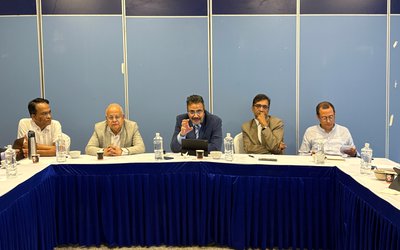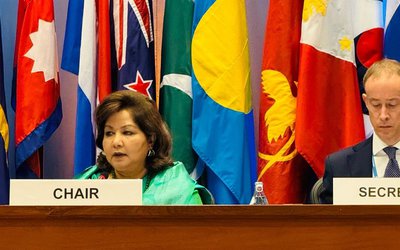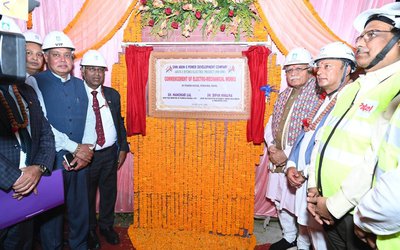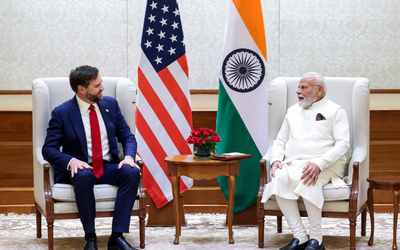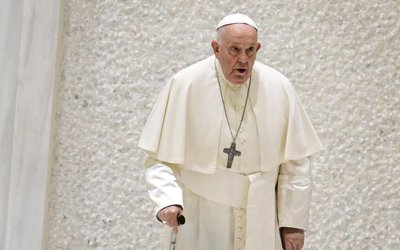
Amid the increasing hurdles faced by Nepal in exporting electricity to India, the recent high-level meeting between foreign minister N.P. Saud and India's External Affairs Minister S. Jaishankar holds great significance.
Though the specific issue of the obstacles to electricity export was not explicitly mentioned during the meeting, both foreign ministers described the talks as fruitful. The meeting took place during the gathering of foreign ministers from member countries of the Bay of Bengal Initiative for Multi-Sectoral Technical and Economic Cooperation (BIMSTEC).
Both sides confirmed that the 'sideline' discussions held during the two-day BIMSTEC foreign ministers' meeting in Bangkok were successful. After the meeting, Foreign Minister N.P. Saud tweeted about the productive discussion with External Affairs Minister Dr. S. Jaishankar, where they exchanged views on matters related to bilateral cooperation and their multifaceted relationship.
Dr. S. Jaishankar also took to Twitter, stating that he had a good meeting with Nepal's Foreign Minister, Narayan Prakash Saud. They agreed to work closely to implement the agenda of cooperation set out by their respective leaderships and expressed their commitment to staying in touch.
Notably, during the BIMSTEC foreign ministers' gathering, discussions were held on enhancing cooperation within the regional organization. The member nations deliberated on ways to consolidate their collaborative efforts.
The recent positive outcome of the meeting between the foreign ministers could potentially pave the way for addressing and resolving the hurdles faced by Nepal in exporting electricity to India in the future. During the BIMSTEC foreign ministers' meeting in Bangkok, Thailand, a range of important topics were discussed, including energy cooperation, expansion of power transmission lines, climate change, health, food security, and technology.
Minister for Foreign Affairs, Narayan Prakash Saud, who was part of the meeting, highlighted the fruitful discussions held among the BIMSTEC member states. The major areas of focus during the meeting included exploring avenues for energy collaboration, expanding power transmission lines, addressing the challenges posed by climate change, ensuring health and food security, and fostering technological cooperation.
By engaging in these comprehensive discussions, the BIMSTEC member countries, including Nepal and India, are demonstrating their commitment to strengthening mutual cooperation and finding solutions to the challenges they face. These deliberations could hold the potential to facilitate a resolution to the issues related to electricity export and enhance overall bilateral relations between the nations in the long runNepalese authorities are expressing concerns about India's new hurdles in importing electricity from Nepal. India has requested financial closure details for projects that have been pending approval for several months. Despite India's earlier commitment to purchase 10,000MW of electricity from Nepal over the next decade, it is now subjecting the approval process to more bureaucratic obstacles. This comes as India has been cautious about approving hydropower projects involving China and is investigating any potential Chinese investment or involvement in projects planning to sell power in the Indian market.
Prabal Adhikari, the power trade director of the Nepal Electricity Authority (NEA), confirmed that India has sought details of financial closure, including project financing and the involvement of various financial institutions and agencies. Interestingly, India did not request these details when granting approval for the 10 projects from which Nepal has been exporting electricity.
Nepal has sought Indian approval to sell power from an additional 18 hydropower projects, with a combined capacity of over 1,000MW. Some of these projects were submitted for approval as early as August 2021. The new request from India implies that Nepal may also need to submit financial closure details for the existing 10 projects when seeking a renewal of export approval.
The annual renewal requirement for export approval has caused uncertainty for Nepal's access to the Indian power market. In response, Nepal had sought a long-term inter-governmental agreement on power trading, allowing both countries to engage in long-term power purchase agreements. The 10,000 MW agreement was signed during Prime Minister Pushpa Kamal Dahal's visit to India in May-June.
Indian officials have not provided a specific reason for their request for financial details, but it may be related to ensuring there is no financing from other countries, particularly China. India has clearly stated that it will not purchase power from any Nepali project with any direct or indirect involvement from China. As a result, India has been reluctant to approve the export of power from the 456MW Upper Tamakoshi Hydropower Project, where a Chinese contractor was involved in the civil works.
Given India's current stance, it is unlikely that there will be any significant changes in its policy towards Nepal, despite positive reactions expressed by both foreign ministers during their recent meeting.
- NEPAL-THAILAND: Joint Business Council
- Apr 13, 2025
- BIMSTEC SUMMIT: Nepal’s Stand
- Apr 11, 2025
- IME GROUP: Expands Into Paper Industry
- Mar 24, 2025
- CPN UML: Instigated By India
- Mar 23, 2025
- ADB’S CHIEF ECONOMIST: Nepal Reduces Poverty
- Mar 11, 2025

